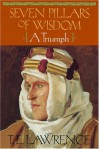Currently reading
1914: GATEWAY TO TODAY'S WORLD

Today [July 28th, 2014] marks 100 YEARS TO THE DAY that the First World War began with the invasion of Serbia by the Austro-Hungarian Empire.
"To End All Wars" is the story, told from a variety of viewpoints, of how Britain fared under the stresses of war between 1914 and 1918. The author "focuses on the long-ignored moral drama of [the war's] critics, alongside its generals and heroes." Among the persons with whom the reader becomes familiar are: Sir John French, a hero of the Boer War and the first commander of the British Expeditionary Force (BEF); Charlotte Despard, Sir John's beloved older sister with whom he shared a close bond, though she was a prominent critic of the war and a staunch Socialist; Bertrand Russell, a distinguished academic, mathematician, writer and philosopher, who went to jail for his opposition to the war; Sir Douglas Haig, Sir John's replacement as commander of the BEF; Alfred, Lord Milner, a fervent supporter of the British Empire blessed with remarkable administrative talents, who came to occupy high office under a wartime government, helping to develop and shape policy; and the Pankhurst family made up of mother Emmeline and her daughters Christabel and Sylvia who had been actively involved in the prewar movement for women's suffrage, but with the coming of war, the family became sharply divided, Emmeline and Christabel fully supporting the war effort, while the youngest daughter Sylvia allied herself with the antiwar movement.
The greatest value of this book lies in its attempt to give the reader a comprehensive account of how the First World War impacted upon British society. For that reason, I highly recommend it for any reader interested in the war and in social history.
 3
3













